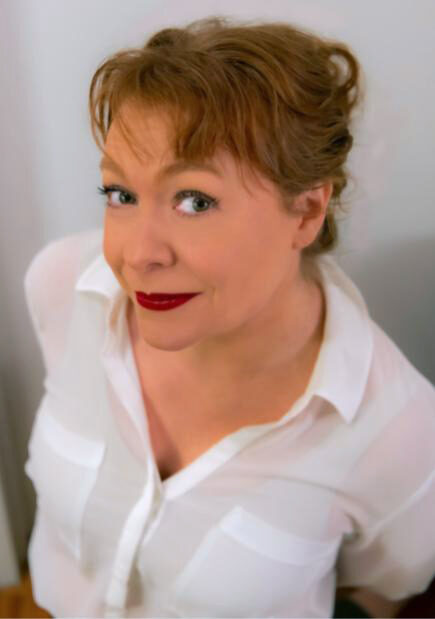
Social Media Integrity Blog, Episode 7: Niki Fairchild Azevedo
The “I Wish to Say” project is an effort to activate democracy through art. Since 2004 Sheryl Oring, and a group of typists, have set up portable offices at various locations around the country to dictate postcards to the President. This year, the project has taken a virtual form with a team of student typists from U-M and Wayne State University.
https://player.acast.com/umichstudents-social-integrity/episodes/i-wish-to-say
Today, I have Niki here with me to talk about the I Wish to Say Project. Niki, can you please introduce yourself and tell us a little bit about the project and how you got involved?
Niki: Sure. My name is Niki Fairchild Azevedo. I am a first-semester graduate student in the Stamps School of Art & Design, getting a master’s in integrative design. I had found out about this project through a Stamps newsletter and immediately wanted to become involved. It has been going on for quite some time, and I just moved from New York, so I was familiar with the project in New York and had always been intrigued. When I saw that they wanted to recruit typists, I signed up.
Can you describe your role as a typist with I Wish to Say?
Niki: I am an official typist, and we have uniforms, and we are issued antique, old-school typewriters with a ribbon. We type and record messages from anonymous individuals who call in and dictate the messages that they want to share [to the next president].
Is there a specific purpose of using the typewriter to write these up instead of just typing it on your computer?
Niki: There’s something about the physicality [of it]. We actually use small postcards and a piece of carbon paper. It is like an antique physical recording that also has an audio component to it—that is an important part of the piece. It’s not as though it’s digitally recorded somewhere. As soon as the person records it, they see that there is a physical relic of what it is that they wish to say.
What is the sentiment of the messages that you’ve currently received?
Niki: There’s a lot of concerns; a lot of people are wanting their perspective to be known and their cares and concerns to be taken into notice in the next presidency. Environmental concerns and racial justice have been themes that have come up repeatedly.
One thing that is important to note is that people are recording these before the election. They’re recording it to the next president without knowing who that president is. So, it’s definitely neutral, politically neutral. And so it’s almost a wishlist to the person that comes into power next.
I really enjoyed being a neutral typist, to be a recorder. Just to be a conduit for what other people have to say, even when it is an opinion that is different than mine or if there are concerns or even political views that are drastically different than mine, it’s been a really valuable experience to be a neutral party that is just recording their words, and that has been a really powerful experience.
How is it when the person is sharing their message over Zoom?
Niki: They sign up ahead of time, and they’re given a time [slot], and then they’re put into a breakout room with an individual typist. It is a very regimented experience that each person is going to get. I simply say, “Welcome. I’m here to record what you would like to say to the next president. How would you like to begin your letter?” And that is all, and then record what people say.
We are passive recorders, but people have been sharing a lot. Some messages are really deep and very thought-through and pre-formed, and other messages have been created on the spot. There really is an entire spectrum of people who want to share their agenda, and make it known, and people who want to just engage.
It’s been a real experience to do that and be neutral and take a step back from my own reactions and my own engagement.
Is it hard to be that passive listener, that passive typist while people are speaking?
Niki: It is a little, and I think that that is a part of where it is so different because you’re behind the typewriter, which is a physical barrier. You’re hearing the keys type, when I think that if you were just recording someone’s writing on a computer, it would be a much different experience. And it is hard to imagine without going through the performance, but there is something magical about it and hearing the ding and then the next line, the sounds of the typewriter and your words being recorded. Even as the recordist, you’re not silent.
Do you have any takeaways that you would like to share?
Niki: It’s a really powerful experience. It is incredibly empowering and uplifting during this time, during this very vitriolic election that we’re having. I think that this is a nice expression to accept what is going to happen in the next four years and frame it in a way that you can control.


